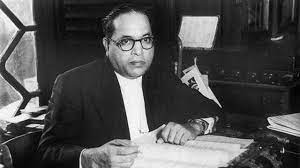Martin Luther King Jr. influenced movements not just in the U.S. but globally

We all know the name Martin Luther King Jr., but who exactly was he and what impact did he have? Martin Luther King Jr. was a social activist and Baptist minister known worldwide as a key player in the American civil rights movement, which began in the mid-1950s. During his lifetime he fought for human rights and the equality of African Americans through peaceful protest. According to History.com, he was the driving force behind watershed events such as the Montgomery Bus Boycott and the 1963 March on Washington, which enabled landmark legislation such as the Civil Rights Act and the Voting Rights Act.
Not only did he influence American civil rights movements, but uprisings across the globe. His vision of nonviolence inspired several other movements including those in South Africa, Northern Ireland, Poland, and India, amongst many others.
South Africa
In South Africa, when Nelson Mandela was president, he used King’s techniques for nearly 30 years after King’s death. King rejected the idea that people of different races should receive treatment differently from their elected officials. Influenced by Martin Luther King Jr., Mandela worked to achieve equality by not only protesting the government but making sure equality was in place no matter what a person’s skin color was.
Northern Ireland
According to Irish Central, similar to the American South, discrimination in Northern Ireland had been around for generations, with protestant people discriminating against Catholics. Treated like second-class citizens, hundreds of Catholics were constantly driven out of their homes as police stood by.
Discrimination focused on three areas: “gerrymandering of constituencies so that there was always a unionist majority, an incredible voting system that allowed multiple votes for rich landowners and businessmen – all Protestant of course – and vicious discrimination in housing,” Irish Central reported.
The housing issue sparked the Northern Ireland Civil Rights Movement, during which a house was refused to a large Catholic family desperately in need and instead given to a young, single Protestant woman.
During his official Nobel Prize interview, father of the movement John Hume credited King, noting that “Martin Luther King was very much our inspiration” when faced with having to address discrimination and prejudice in Northern Ireland.
Poland
King’s vision and work also influenced social movements in Poland. According to The Washington Post, in the 1980s social movements to advance worker rights in the country used the award-winning documentary From Montgomery to Memphis as a training guide to practicing nonviolent resistance. Students held signs with phrases similar to those used in the Montgomery bus rights, including, “We Shall Overcome,” with many noting they studied King’s work to influence how they could make a change.
“They were singing ‘We Shall Overcome’ in Czechoslovakia and Romania,” Steve Klein, communications coordinator at the King Center in Atlanta, told the Post. “Even Nelson Mandela referenced Dr. King the day he won the South African election, and he invoked King’s use of the old Negro spiritual lyrics ‘free at last.’”
India
Several movements in India have been inspired by King, especially when it comes to socialism and equality. While many parts of India still use a caste system, some areas have progressed due to movements modeled on King’s ideology. According to The Washington Post, finding power in King’s “I Have a Dream” speech, several Dalits—previously known as “untouchables” in Indi—empowered themselves to create change.
Dalits consist of people labeled the lowest caste in the country’s system. As a result, they are not only treated wrongly by others but experience systemic abuses such as the inability to get jobs and access to education. Because the old practiced caste system had placed certain people in job categories, for centuries Dalits were expected to not be educated and instead do jobs considered beneath others.
Influenced by King, Dalit activist B.R. Ambedkar led more than 500,000 Dalits to leave Hinduism and its caste system and convert to Buddhism, just as some African Americans had moved to Islam.
But the movement didn’t end there: Dalit activists continue to fight for their rights in India, often referring to the structure and practices used in the American civil rights movement.
“Like Dalits, African Americans in the U.S. faced discrimination in religious centers, public transport, schools and jobs,” Chandra Bhan Prasad, a Dalit scholar and writer, told the Post. “Ambedkar was always inspired by MLK and the black movement in the U.S.”
Associated in 1968, King is remembered each year on Martin Luther King Jr. Day, which is held on the third Monday of January. Martin Luther King Jr. Day has been a federal holiday since 1986.
King’s influence lead to several monuments, streets, and boulevards being put up in his honor across the globe, including in places like Terranova, Italy; Niamey, Niger; Kolkata, India; Dakar, Senegal; Martinique; Tel Aviv, Israel; Porto Alegre, Rio de Janeiro, Sao Paulo and Recife, Brazil; and Brussels, Belgium.
“Dr. King is everywhere. There are so many places that we can’t keep track. But it doesn’t surprise me at all,” Klein said. “King was liberating an oppressed minority, and in doing so he really showed the world that principles of nonviolence can be successful.”
Courtesy : Daily kos
Note: This news piece was originally published in dailykos.com and used purely for non-profit/non-commercial purposes exclusively for Human Rights .







